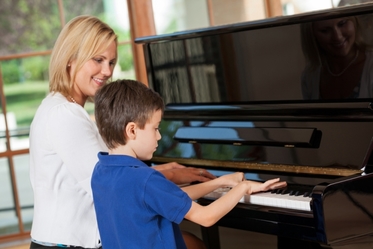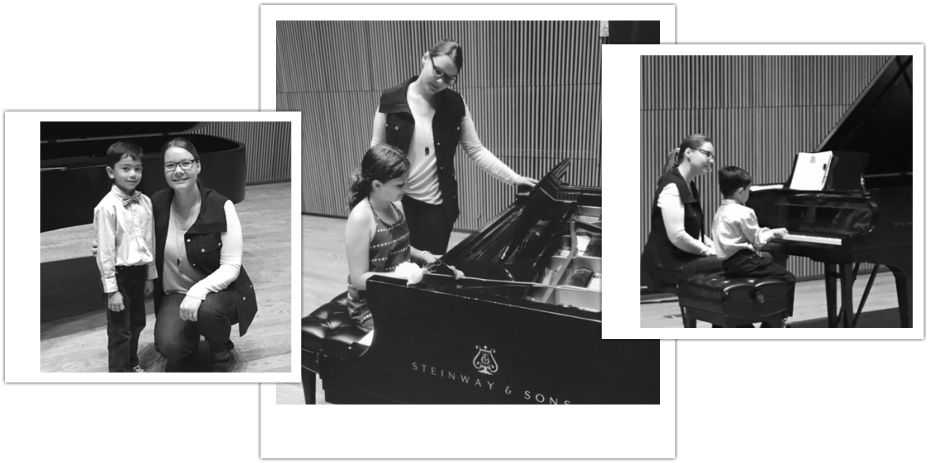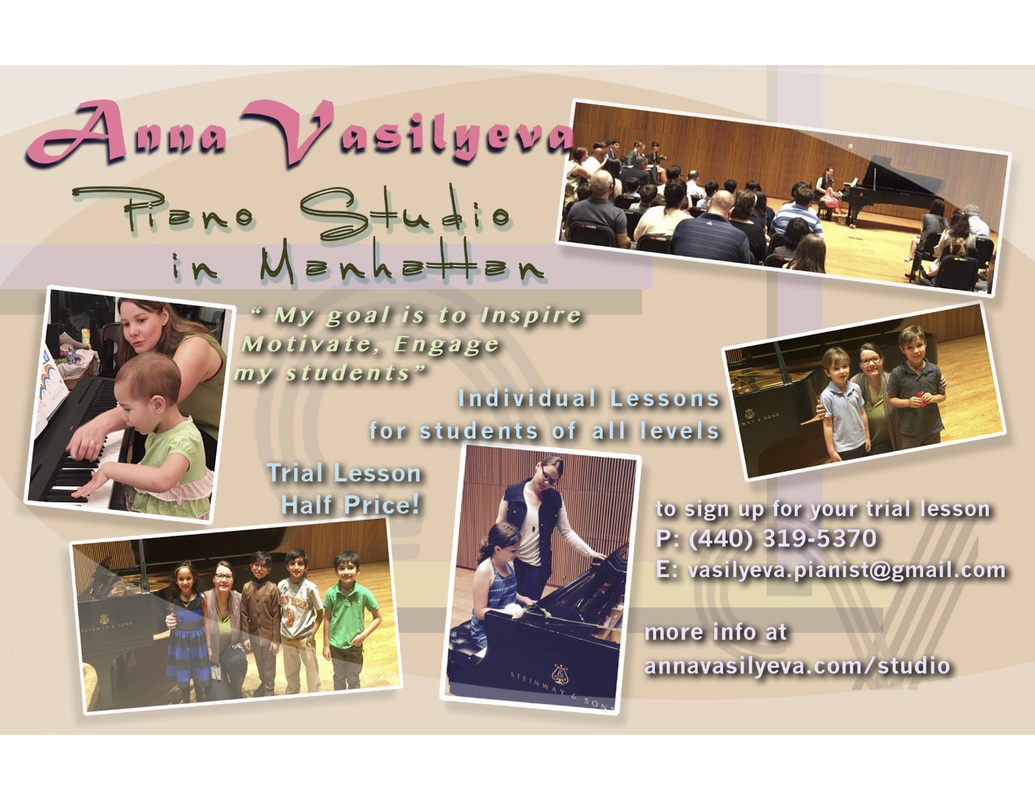Resources for Students & Parents |
Source: www.mtna.com
Guide to Your Child's Musical Future
Research agrees, experts concur—music instruction helps children in life. Music can provide joy, beauty and build important life skills in children at any age. The gift of music lasts a lifetime: after the soccer ball is in the garage, the ballet shoes are in the back of the closet and the football uniform is too small, music continues—often into adulthood.
Preschool music programs engage a child’s natural curiosity and exploration and include singing, movement and interactive activities with adults. From birth to school age, classes are designed to pique young children’s innate response to sounds and singing, rhythms and movement.
Formal music lessons can begin when students are officially starting formal school, usually first grade. Piano and violin are the most common “starter” instruments because the physical limitations of a child’s body will not allow them to play other instruments until they are older.
Before you and your child embark on a music journey, it is imperative to the success of your child’s musical experience to choose a qualified music teacher.
So Don’t Delay Building A Music Future—Your Journey Begins Now!
YOUR NEXT STEP…
Birth–24 Months
Preschool music classes begin with basic information and exposure to movement, response to music genres, lullabies, tickles and wiggles. The child is always accompanied by an adult who learns the material to be repeated during the week. Babies are always ready to do something—music is the perfect activity.
2–4 Years
Preschool classes for toddlers are designed to engage children both with and without adults. Toddlers are exploring the world, learning about colors, numbers, letters and seasons. Look for music programs that integrate both music and life skills into their world. Singing and movement will be a big part of toddler music programs.
5–6 Years
Many music programs begin the introduction of music instruments at age 5, particularly piano and string programs. Physical limitations of a child’s body prevent students from beginning other instruments until later. Programs introducing children to the piano or string instruments usually require parents to attend and/or are designed with the pre-first-grader in mind. Classes are generally made of a variety of activities, not just sitting and playing the instrument for 30 minutes. Check into programs that introduce your child to the instrument, but also involve movement, rhythm activities, singing and more. If you are considering individual one-on-one lessons at this age, be sure your child has developed a longer attention span and has an understanding of numbers and the alphabet.
6 and Older
At this age, students typically begin formal lessons, either in a group setting or privately. There are disadvantages and advantages to both kinds of study, and you will want prospective teachers to articulate those reasons for you. Certainly, group lessons foster social skills, cooperative learning and teamwork. Teachers are proactively planning classes and designing lesson plans that involve several aspects of learning the instrument. In a private, individual setting, teachers are designing lessons based solely on each individual student and his or her individual progress, focusing primarily on repertoire.
Guide to Your Child's Musical Future
Research agrees, experts concur—music instruction helps children in life. Music can provide joy, beauty and build important life skills in children at any age. The gift of music lasts a lifetime: after the soccer ball is in the garage, the ballet shoes are in the back of the closet and the football uniform is too small, music continues—often into adulthood.
Preschool music programs engage a child’s natural curiosity and exploration and include singing, movement and interactive activities with adults. From birth to school age, classes are designed to pique young children’s innate response to sounds and singing, rhythms and movement.
Formal music lessons can begin when students are officially starting formal school, usually first grade. Piano and violin are the most common “starter” instruments because the physical limitations of a child’s body will not allow them to play other instruments until they are older.
Before you and your child embark on a music journey, it is imperative to the success of your child’s musical experience to choose a qualified music teacher.
So Don’t Delay Building A Music Future—Your Journey Begins Now!
YOUR NEXT STEP…
Birth–24 Months
Preschool music classes begin with basic information and exposure to movement, response to music genres, lullabies, tickles and wiggles. The child is always accompanied by an adult who learns the material to be repeated during the week. Babies are always ready to do something—music is the perfect activity.
2–4 Years
Preschool classes for toddlers are designed to engage children both with and without adults. Toddlers are exploring the world, learning about colors, numbers, letters and seasons. Look for music programs that integrate both music and life skills into their world. Singing and movement will be a big part of toddler music programs.
5–6 Years
Many music programs begin the introduction of music instruments at age 5, particularly piano and string programs. Physical limitations of a child’s body prevent students from beginning other instruments until later. Programs introducing children to the piano or string instruments usually require parents to attend and/or are designed with the pre-first-grader in mind. Classes are generally made of a variety of activities, not just sitting and playing the instrument for 30 minutes. Check into programs that introduce your child to the instrument, but also involve movement, rhythm activities, singing and more. If you are considering individual one-on-one lessons at this age, be sure your child has developed a longer attention span and has an understanding of numbers and the alphabet.
6 and Older
At this age, students typically begin formal lessons, either in a group setting or privately. There are disadvantages and advantages to both kinds of study, and you will want prospective teachers to articulate those reasons for you. Certainly, group lessons foster social skills, cooperative learning and teamwork. Teachers are proactively planning classes and designing lesson plans that involve several aspects of learning the instrument. In a private, individual setting, teachers are designing lessons based solely on each individual student and his or her individual progress, focusing primarily on repertoire.
How Parents Can Help Young Piano Beginners with Practice

This article details how parents can help young beginners on piano with weekly practice assignments in 3 simple tips. These tips do not require any previous music study for the parents, but can help make lessons for 4 to 6 year olds very successful.
Parents Help Their Children
Piano is a great instrument for young beginners to start on, regardless of the ultimate instrument they want to play. For 4 to 6 year olds, it may be too early to start on guitar or a band instrument, for example, but beginning on piano helps in establishing note and rhythm reading basics. As a piano teacher, parents of younger students often ask me how they can help in weekly practice for their children, and there are many ways they can do so! Helping young students with piano practice does not require any previous music study from parents, but can enhance the experience until the student gets into a practice routine. Here are 3 easy tips to help you along the way!
Listening In On The Piano Lesson
Feel free to observe some lessons, especially at the beginning of study. The preference is totally yours about how often you would like to sit in on a lesson, but doing so occasionally with a younger student helps you get a sense of what they are working on and how the teacher is showing the student to practice. You’ll see what the current assignments/pieces are for your child and gain insights from hearing the teacher’s feedback. Most piano teachers will also agree that having a parent present for a couple of early lessons is very beneficial for young students, and the experience is actually quite fun and informative!
Ask the Piano Teacher Questions
If you have any questions or concerns about assignments or ways to help your child practice, communicate with your teacher. A lot of times, at the end a young beginner’s lesson, parents will ask me for a quick summary of new assignments and ways they can help in ensuring that the student is practicing productively. Piano teachers love to help with these types of questions! Sometimes, it can be as simple as just repeating certain sections, or making sure that slow practice is being done. Also, teachers can let the parents know about ideal time allocations for practice each day. These conversations don’t have to be very in depth, as far as musical specifics go, but staying in the loop about where the students are in the curriculum can be very insightful.
Encourage Engagement with the Piano
Young beginners on piano gain confidence and bearings on the instrument after several lessons. At the onset of lessons, young students may not be comfortable approaching the instrument on their own, or may be unsure about exactly what they should be working on. Parents can help by encouraging students to show them something they learned, or even have the student improvise for them. The goal is to have the student gain familiarity with going to the piano—like building a good habit. The more this comfort is established, the easier it will be for the student to start practicing independently. Encouragement and positive reinforcement for the student playing ANYTHING on the piano is also very constructive, as the student will have a sense of accomplishment and pride around the instrument.
Their Musical Journey on Piano
Parents can help tremendously in ensuring the success of piano lessons for young beginners—and it’s an easy task! Staying informed about what is being worked on and encouraging the student goes a long way, even if you as a parent have not taken music lessons before. Young beginners on piano are great students, and with a little help at the beginning, your child will gain practice independence and comfort with the piano that will follow them through their musical journey!
Parents Help Their Children
Piano is a great instrument for young beginners to start on, regardless of the ultimate instrument they want to play. For 4 to 6 year olds, it may be too early to start on guitar or a band instrument, for example, but beginning on piano helps in establishing note and rhythm reading basics. As a piano teacher, parents of younger students often ask me how they can help in weekly practice for their children, and there are many ways they can do so! Helping young students with piano practice does not require any previous music study from parents, but can enhance the experience until the student gets into a practice routine. Here are 3 easy tips to help you along the way!
Listening In On The Piano Lesson
Feel free to observe some lessons, especially at the beginning of study. The preference is totally yours about how often you would like to sit in on a lesson, but doing so occasionally with a younger student helps you get a sense of what they are working on and how the teacher is showing the student to practice. You’ll see what the current assignments/pieces are for your child and gain insights from hearing the teacher’s feedback. Most piano teachers will also agree that having a parent present for a couple of early lessons is very beneficial for young students, and the experience is actually quite fun and informative!
Ask the Piano Teacher Questions
If you have any questions or concerns about assignments or ways to help your child practice, communicate with your teacher. A lot of times, at the end a young beginner’s lesson, parents will ask me for a quick summary of new assignments and ways they can help in ensuring that the student is practicing productively. Piano teachers love to help with these types of questions! Sometimes, it can be as simple as just repeating certain sections, or making sure that slow practice is being done. Also, teachers can let the parents know about ideal time allocations for practice each day. These conversations don’t have to be very in depth, as far as musical specifics go, but staying in the loop about where the students are in the curriculum can be very insightful.
Encourage Engagement with the Piano
Young beginners on piano gain confidence and bearings on the instrument after several lessons. At the onset of lessons, young students may not be comfortable approaching the instrument on their own, or may be unsure about exactly what they should be working on. Parents can help by encouraging students to show them something they learned, or even have the student improvise for them. The goal is to have the student gain familiarity with going to the piano—like building a good habit. The more this comfort is established, the easier it will be for the student to start practicing independently. Encouragement and positive reinforcement for the student playing ANYTHING on the piano is also very constructive, as the student will have a sense of accomplishment and pride around the instrument.
Their Musical Journey on Piano
Parents can help tremendously in ensuring the success of piano lessons for young beginners—and it’s an easy task! Staying informed about what is being worked on and encouraging the student goes a long way, even if you as a parent have not taken music lessons before. Young beginners on piano are great students, and with a little help at the beginning, your child will gain practice independence and comfort with the piano that will follow them through their musical journey!
© 2018 Anna A. Vasilyeva



